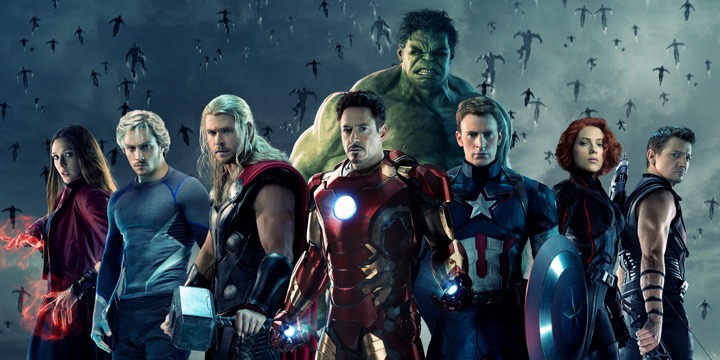Superpowers and Storytelling

We love our superpowered heroes. Flight, strength, laser beams and more in the hands of people just like us. And the more powerful that they can be, the better. But as our heroes cross the limits of humanity, it adds more and more complications to how the story fits together, and how we, as an audience, can relate. When you start looking at superpowers, the very laws that govern our reality start to break down, and writers have to deal with the way in which this affects the plot. In the Marvel Cinematic Universe, there are multiple characters capable of warping all of reality to their whim, unkillable monsters, stones that embody pure power, literal gods, and extradimensional entities that rule over time itself. Yet so many of these reality breaking characters play by the rules of our normal universe.
Why, in Doctor Strange, do the reality warping sorcerers fist fight with each other, instead of winking their opponents out of existence, or rewinding time until they were never born. It is easy enough to write around the abilities of Iron Man or Batman, because they are essentially rich guys in nice suits.
But how do you handle The Hulk? A creature that gets stronger the angrier it gets, and will keep getting angrier (and therefore stronger) forever. Or the Scarlet Witch, who can manipulate matter at will, an AI given life in a body powered by an Infinity Stone, an object of limitless power and energy that can rip holes in spacetime and decimate entire planets at a touch.
You have to carefully construct rules to constrain these abilities and that is one of the big failings of the MCU. They don’t establish these rules, and as such things don’t always add up. Feats of strength from a character in one movie don’t quite match their performance in another. Very few films actually set up the rules in a way that doesn’t leave you walking out of the theater asking yourself why the main character didn’t simply use their power in a smarter way and solve the core problem of the film almost instantly.
You need to do a few things to have these powers make sense.
1.) Establish their limits, their strengths, and their weaknesses
2.) Set their costs and their side effects.
If you give a character telekinesis, make sure the audience knows how much they can move or how far they can move it. If the act tires them out, how precise of control hey have with it, and what all it can affect. Saying a character can move objects with their mind and saying a character can move non-organic objects under 100 Kg within a radius at a cost of tiring out the characters establish entirely different things with the audience.
It is the real difference between the character having an interesting power and allowing them to kill anyone in the world by flinging a sewing needle at thousands of miles per hour or pinching off blood vessels in their opponent’s brain.
You of course don’t have to come out and say the rules this directly. The guiding principle of writing still stands. “Show, don’t tell.” Show situations when characters struggle to use their powers, or scenarios in which they don’t work at all to show the audience how they can be practically used. One of the best examples of this (at least in my opinion) comes from the manga/anime of Hunter x Hunter and the system of “Nen” that it contains. It’s this world’s version of chi or aura, but the way in which they explain it to the audience leaves it as one of the most fully fleshed out power systems that I have seen in fiction.
It breaks down how these powers can be used, how they are classified, how they can be strengthened and weakened, and more. It leads to a very powerful system that allows for each character to have their own unique abilities without it feeling out of place, and it prevents those nagging questions of “why didn’t they just do X”, where X is the easy solution to any problem, because they show you what happens if you try to transcend the limitations of the system or break any of the rules. Unspeakable horrors await.
Movies frequently don’t have the same amount of time as a long running anime/manga, but they also don’t have the same volume of story to support with these powers. With every superhero movie, the limits are pushed further and further, and it makes it more unbelievable that the hero and villain end up just punching each other at the end. We desperately need some sense of logic to how these abilities are composed, or it will all cease to make sense at all.
_____________________________________________

Tom has been writing about media since he was a senior in high school. He likes long walks on the beach, dark liquor, and when characters reload guns in action movies.
You Might Also Like:
Product Placement: Realism vs. MarketingThe Uncanny Valley
Situation Invincibility and How it is Ruining Action Movies
_____________________________________________